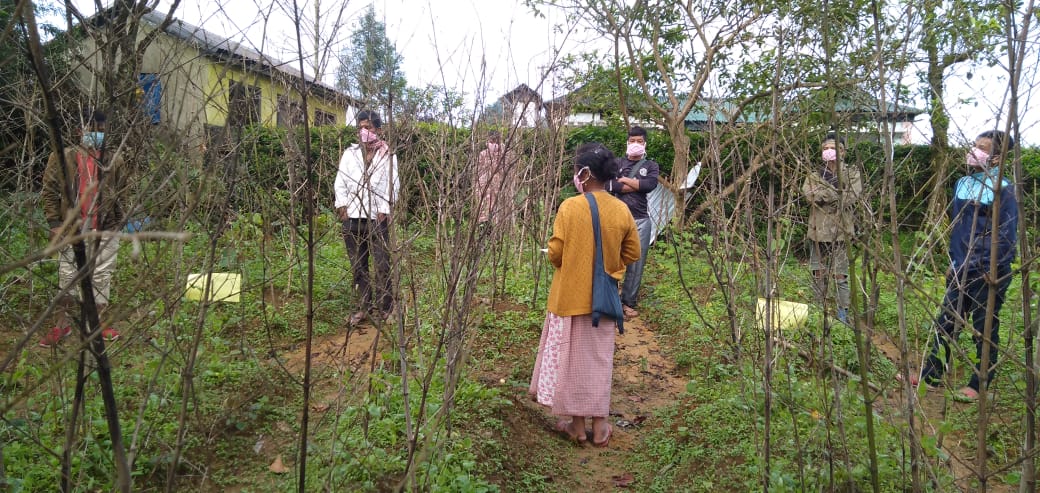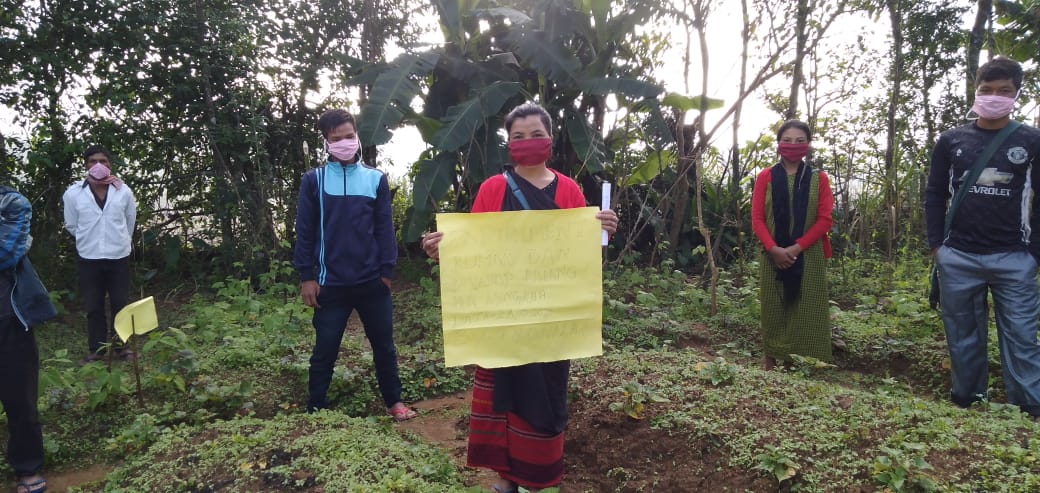Community members of Umsawwar have now opened up their journey to exercising a chemically free approach to agriculture after the intervention of community leaders from the area. Through a series of awareness campaigns organized by NESFAS, Agroecology Learning Circle (ALC), and Participatory Guarantee System (PGS), community members have recognized and acknowledged the new information of producing healthy food to protect both the ecology and the traditional farming system and the proper control and inspection of pests can minimize the economic losses and damage to the environment.
A network of information was shared with community members to help them understand the harmful and damaging impact that fertilizers and chemicals have on the crops and the soil. Through the experiences and knowledge of ALC members on pest management, they performed several experiments and exercises on soil health and pest management so they can share with community members to learn. These experiments were a success as they were compatible with the available resources in the community. In the same way, the activities put up by Bio-Resources Development Centre, Shillong (BRDC) help community members broaden their knowledge of pest management by learning through community exchange visits with farmers who belong outside their community.
On October 28, 2020, the demonstration to train community youth members on pest management through experiments and exercises was conducted by the ALC representative and PGS Tronila Lynshiang (40). This demonstration taught the youth members the following: yellow chart paper can be used to trap pest by applying honey or jaggery on the chart, unuse bottle can collect insects that are kept untouched under the tree, herbs such as langtana iong or langtana lieh, lieh, riengdong reaps strong smell which prevents insects and pest to cluster, planting garlic, onion, ginger, black pepper and tobacco around the crops also prevent the crowding of insects and pest and lastly, cow dung manure provides good fertility for the soil.

Kong Tromila Lynshiang, one of the ALC/ PGS group, member of Umsawwar village training the youth about Pest management
Lynshiang said, “After I got my pieces of training on how to manage the pest in the farmland without using chemicals and fertilizers, I started working on my own farm and I got a lot of information and knowledge on how damaging chemicals and fertilizers are for the ecosystem and our health. When we manage the pest in a natural manner, we create a system of chemical-free and sustainable crops.”
After introducing the alternative methods for controlling pest management, members of the youth club found that the crops grew better and produced more harvest.
The Umsawwar youth club expressed their gratitude to Tronila for showing them the ways of managing the pest control on the crops. Dakmenshisha Mynsong, president of the youth club, said, “We are ready to cut down the practice of pests and chemicals on our farmland and crops. The demonstration gave us new insights and information to use alternative methods of pest management.”
 Translate
Translate





